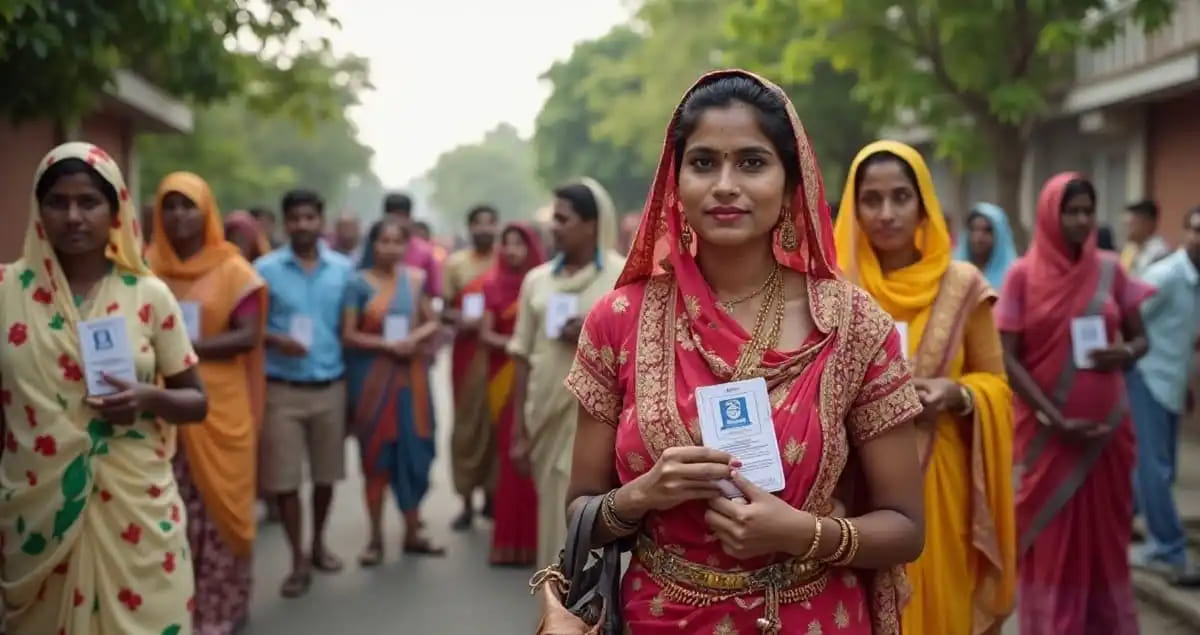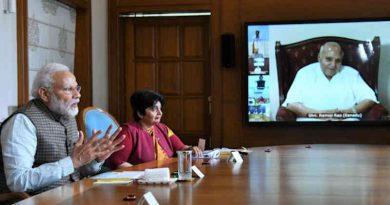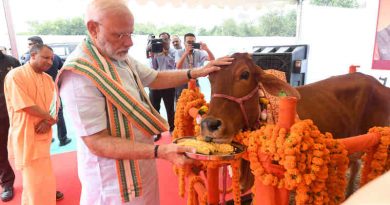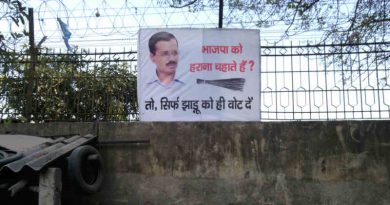Irony in India: Congress Blasted for “Massive Electoral Fraud,” the Same Charge It Levels at Modi’s BJP

Irony in India: Congress Blasted for “Massive Electoral Fraud,” the Same Charge It Levels at Modi’s BJP
The controversy in Telangana is a microcosm of a national crisis of faith, where it is no longer about one party’s alleged wrongdoing but about the perceived decay of the entire electoral framework.
By Rakesh Raman
New Delhi | October 15, 2025
Introduction: The Unsettling Echoes of Electoral Doubt
The integrity of the ballot box is the bedrock of any functioning democracy. Fair elections are not just a process but a promise—a guarantee that the will of the people is the ultimate law of the land. When that promise is broken, or even perceived to be broken, the entire democratic structure is threatened. This is the drama currently unfolding in the Indian state of Telangana, where the ruling Congress party is facing startling allegations of “massive electoral fraud” and “vote chori” (vote theft).
The allegations come from the Bharat Rashtra Samithi (BRS), a regional rival, ahead of a crucial by-election. But what elevates this from a local political squabble to a story of national significance is the profound irony at its core. For years, the Congress party has been one of the most vocal critics of Prime Minister Narendra Modi’s BJP, frequently accusing it of manipulating voter rolls and tampering with Electronic Voting Machines (EVMs) to steal elections. Now, Congress finds itself on the receiving end of identical accusations.
This reversal is more than just a political curiosity; it points to a potentially deep-seated rot in the system. This post will break down the four most surprising and impactful takeaways from this unfolding scandal, exploring what it means when the accuser becomes the accused and the very tools of democracy are called into question.
1. The Accuser Becomes the Accused: A Striking Political Reversal
The central irony of the situation in Telangana is impossible to ignore. The Congress party, which has consistently and publicly accused the BJP of “election thefts involving electoral rolls manipulation and Electronic Voting Machine (EVM) tampering,” is now facing the exact same charges. The BRS party is not just vaguely claiming foul play; it is alleging a systematic campaign to rig the Jubilee Hills Assembly by-election, forcing the party to approach the Telangana High Court to seek judicial intervention to rectify the Jubilee Hills voter list.
[ RMN Foundation Publishes Three Landmark Research Reports on Democracy, Judiciary, and Education ]
This role reversal shatters the simple narrative of one ‘dirty’ party and one ‘clean’ one, exposing a potential systemic rot where the tools of electoral fraud are becoming a shared, bipartisan playbook. When a major national party that has positioned itself as a defender of electoral integrity is accused of using the very tactics it decries, it erodes public trust not just in the party, but in the entire political class. This raises the uncomfortable reality that such manipulation may be becoming a standard feature of the political game.
2. The Shock is in the Specifics: “Irrefutable Evidence” or Desperation?
Vague accusations of fraud are common in politics, but the claims laid out by BRS leader KT Rama Rao (KTR) are notable for their specificity. Rather than general complaints, KTR presented what he termed “irrefutable evidence” from his party’s ground-level verification. The details make the allegations tangible and difficult to dismiss as mere political rhetoric.
The specific claims include:
- An addition of 23,000 votes to the Jubilee Hills constituency rolls since the 2023 Assembly election.
- Instances of “abnormal mass registrations,” including 23 votes registered to a single, small 80-square-yard house.
- Another case where an apartment was listed with 43 voters, whose owner allegedly had no knowledge of the individuals registered there.
- The discovery of unauthorized secondary Electoral Photo Identity Cards registered to individuals without their knowledge.
While Congress leaders have dismissed these claims as an “act of desperation,” the detailed nature of the evidence makes the BRS party’s case more potent. In an era of rampant misinformation, presenting specific, verifiable data points—an 80-square-yard house with 23 voters—is a strategic move by BRS. It shifts the fight from the realm of political rhetoric to a battle over forensic evidence, making the accusations harder for both Congress and the Election Commission of India to ignore.
3. The Rhetoric Heats Up: A “Daylight Murder of Democracy”
The language used by KTR to describe the alleged fraud underscores the severity of the crisis in trust. He didn’t just speak of irregularities; he framed the actions of the Congress government as a fundamental assault on the democratic process itself.
…the “daylight murder of democracy,”…
KTR deployed this powerful phrase while accusing the Congress government of misusing official machinery and employing “all means, persuasion, division, and coercion, to influence the outcome.” This level of rhetoric signifies a complete breakdown of faith in the institutions meant to safeguard elections. The BRS also expressed deep dissatisfaction with the Election Commission of India (ECI), claiming the poll body failed to respond in a timely manner despite being provided with detailed proof. When a major political party publicly declares democracy is being “murdered” and the referee is silent, it signals a dangerous erosion of the norms that underpin a free and fair electoral system.
4. A Local Scandal or a National Sickness? The Bigger Picture
While the immediate flashpoint is a single by-election in Jubilee Hills, these events must be placed within a disturbing national context. They are part of a larger, troubling pattern where “dirty tricks” are becoming a prerequisite for victory. The accusations echo widespread concerns about the “vulnerability of EVMs” and a growing belief that winning elections now requires knowing “the art of stealing voter databases and hacking EVMs.”
This narrative is supported by documented research on electoral practices at the national level. A political research report, “Unveiling the Smokescreen of Indian Democracy: Fabricated Factors Masking Electoral Manipulation,” alleges that the Modi-led BJP’s national success is built on strategies that mask underlying manipulation. The report’s credibility is bolstered by its official archival on Zenodo, a global research repository managed by CERN. The BRS’s data-driven attack in Telangana and the academically archived “Smokescreen” report are two sides of the same coin. They signal a potential shift in Indian politics, where accusations of fraud are no longer just shouted at rallies but are increasingly being substantiated with specific data and formal research, challenging institutions to engage on the basis of fact, not just rhetoric.
Who Guards the Guardians?
When the ruling party and the principal opposition are both simultaneously accusing each other of systemic, sophisticated electoral fraud, it creates a politically toxic feedback loop. This marks not just a critical juncture but a potential democratic death spiral. The controversy in Telangana is a microcosm of a national crisis of faith, where it is no longer about one party’s alleged wrongdoing but about the perceived decay of the entire electoral framework. The trust that voters place in the process—from the accuracy of the voter rolls to the impartiality of the Election Commission—is visibly fraying.
As these accusations become the new normal in Indian politics, who can voters ultimately trust to ensure their voice is truly heard?
By Rakesh Raman, who is a national award-winning journalist and social activist. He is the founder of a humanitarian organization RMN Foundation which is working in diverse areas to help the disadvantaged and distressed people in the society.
Rakesh Raman | LinkedIn | Facebook | Twitter (X)
💛 Support Independent Journalism
If you find RMN News useful, please consider supporting us.




